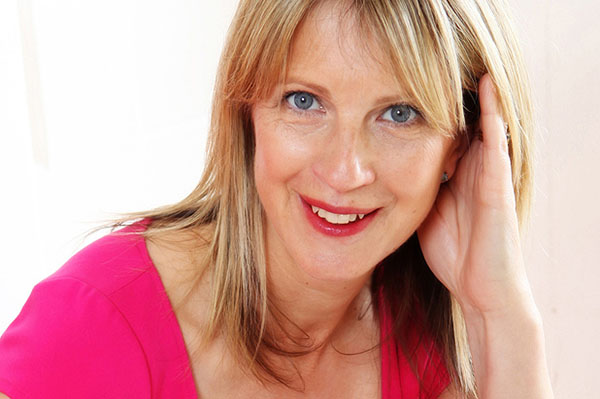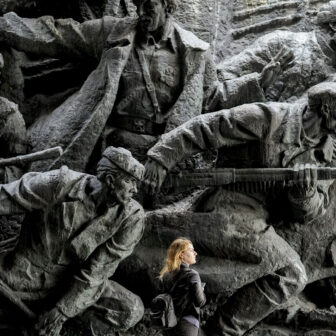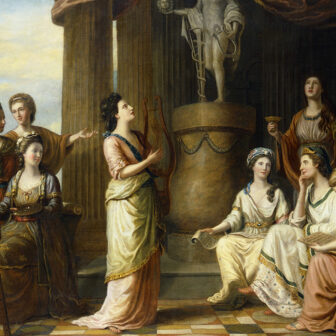THE ENGLISH WRITER Julie Myerson has caused a furore in the British press by publishing an intimate memoir about her twenty-year-old son’s drug addiction. How dare she, shriek the members of the commentariat; she has betrayed her son in order to further her own ambition. Well, they have a point, even if all writers are engaged in a form of literary cannibalism, feeding off the lives of others to produce books. In her 1990 classic, The Journalist and the Murderer, Janet Malcolm took a metaphorical hatchet to the ethics of journalism and, by implication, most other forms of writing. In a now famous opening paragraph she wrote: “Every journalist who is not too stupid or too full of himself to notice what’s going on knows that what he does is morally indefensible.” The journalist is “a kind of confidence man” who preys on the lives of others, “betraying them without remorse.” Or, as Joan Didion more pithily expressed it: “A writer is always selling somebody out.”
In Myerson’s case the ethical issues are compounded by the fact that her “prey” is her own son. At forty-eight she is the author of seven books, one of which, Something Might Happen, was shortlisted for the 2003 Man Booker Prize. In The Lost Child, subtitled A True Story, published in Australia next month, she gives an anguished account of her struggle as a parent to deal with the drug addiction of her eldest child, Jake. After two years of strife, during which Myerson alleges that her son was dishonest, violent and abusive of a younger sibling to whom he dealt drugs, she and her screenwriter and director husband Jonathan Myerson implemented a policy of so-called tough love. They changed the locks on their house and threw the seventeen-year-old Jake out of the family home.
When pre-publicity for the book emerged in the British media Jake Myerson struck back. In an interview with the Daily Telegraph he described his mother’s book as “insane” and “obscene.” Myerson alleges that Jake gave his consent to the book and agreed to the publication of several of his adolescent poems within the text. Jake denies this. “I was only seventeen, I was a confused teenager, I was too young really to know who I was or what was happening,” he told the Telegraph. He cited his mother’s long-time practice of drawing on family material, including a controversial column she wrote for the Guardian which caused her children embarrassment and was subsequently withdrawn by the paper from its website to protect the privacy of the young Myersons. “She’s been writing about me since I was two,” Jake claimed, “and, quite frankly, I’m not surprised by anything she does any more.”
It is hard to recall a public war between mother and son of such intensity. Myerson has been portrayed in the media as the ultimate bad mother who devours her children, a narcissist so desperate for attention that nothing in her domain is sacred. Tim Lott in the Independent declared her book a moral failure: “she has got the balance wrong between the writer’s desire to reveal the truth and the moral responsibility to protect others’ rights to their truth.” Writing in the Times, Minette Marrin called The Lost Child “a betrayal of motherhood itself… in writing about her son at an age when adolescent boys struggle most to establish their own identity she has superimposed her story on his for as long as her book is read.” Jake Myerson agrees with Marrin, denying not only that he approved the publication of the manuscript but also its factual accuracy: “She [Myerson] is a writer and like a lot of writers she is wrapped up in her own world – even if the worlds they are creating aren’t quite true, they become true to them anyway, and I wasn’t prepared to let her world colour mine any more.”
For Myerson’s publishers, Bloomsbury, this pre-publication furore was too seductive a marketing temptation to resist and they rushed the book into early release, citing public interest: other parents would benefit from a cautionary tale. Since then Myerson’s few defenders have attempted to make a somewhat half-hearted case both for public interest and artistic freedom. Novelist Mark Lawson argues that Myerson’s book is brave and her only crime is her “unworldliness,” an odd defence to make of someone with a history of appearing in the media, including as a regular reviewer on BBC2.
Some Myerson supporters cite recent examples of authorial licence – Hanif Kureishi, for example – where the hurt caused to the writer’s former intimates has not resulted in a literary fatwa. Is this an example of double standards, of misogynistic mother-bashing? Are we dealing here with a kind of primal rage directed at a classic archetype from fairy tales, the witch mother who appropriates her child’s beauty/inheritance/story to feed her vanity? Quite possibly we are, but Kureishi’s subjects were his father and his ex-wife, not his children.
Myerson says that she did not set out to write a book about her son. Her initial focus was to research the short life of Mary Yelloly, a gifted young watercolourist in the Regency era whose folio of paintings Myerson came across in an antique shop. Yelloly died of tuberculosis at the age of twenty-one and Myerson claims that her historical research prompted a comparison of her own situation with that of Yelloly’s parents (who ultimately lost seven of their ten children to the one disease). To quote from The Lost Child’s jacket blurb: “The circumstances are very different but the questions remain terrifyingly the same. What happens when a child disappears from a family? What will survive of any of us in memory or in history? And how is a mother to cope when love – however absolute, however unconditional – is not enough to save her child?” As she researched young Mary, writes Myerson, her son’s story began to bleed into the project and in the end “I gave in and let the two strands weave together on the page, just as they seemed to in life.”
Reading this I wondered if this somewhat strained rationale were not indicative of some writerly rather than maternal desperation, by which I mean that Myerson’s Mary Yelloly project, even by her own account, is not substantial enough to flesh out an entire book. In the writing of it she makes much of a kind of classic quest narrative – of her several visits to archives, graveyards and descendants of the Yelloly family – but the research yield is poor. One can’t help suspecting that, as many writers do, Myerson found there was not enough material to complete a book already under contract. Did she then unconsciously look around for other material to make up the slack, including not only her son’s addiction but an account of her own unhappy childhood, shuttled between divorced parents? In aesthetic terms, the outcome is something of a literary dog’s breakfast, raw and undigested. To have carried off the strangely hybrid project of The Lost Child, with its disjointed narrative jump-cuts from one era to the next, Myerson would have needed to come up with a more reflective, a more analytical text, a philosophical meditation on loss. To write such a book requires a certain distance on its subject, and while it’s impossible not to feel sympathy for Myerson’s anguish as a parent, and a perhaps therapeutic need to get something down on paper, if she had waited a few years she is likely to have produced a more successfully integrated work. By that time her son may well have been ready to give his consent.
I REMEMBER a forum on women writers in Sydney in the 80s where I raised the question of why so few women writers wrote about the experience of motherhood. In the discussion that ensued there emerged a kind of uneasy consensus that while adults were – within reason – fair game, children were off limits. It was acceptable to write scarifying portraits in fiction of parents, for example, and this had produced some of our most admired literature, as in the case of Christina Stead’s The Man Who Loved Children and Isobel Witting’s I for Isobel. Both Stead’s father and Witting’s mother had been dead at the time of publication but even if they had been alive, the feeling of the forum was that they would have been adults, able to speak out and defend themselves, just as Germaine Greer’s mother now responds in her own way to Greer’s caustic remarks on their mother–daughter relationship. It was also okay to write in a generic sense as, say, the American feminist Adrienne Rich had done about the demands of small babies on the mental and physical resources of the mother; no individual child was likely to feel betrayed by such an account, or remonstrate with her or his mother once they reached adulthood. Maternal frustration of this kind was no reflection on the individual child – unless of course the child was handicapped or autistic.
Perhaps the best known Australian account of a troubled childhood is Anne Deveson’s non-fiction book about her schizophrenic son, Tell Me If I’m Here. It’s a confronting book but as a writer Deveson works her material with greater moral and analytical intelligence than Myerson and, more to the point, did not publish until after her son’s death.
The most acclaimed contemporary novel about a child, told from the mother’s point of view, is Lionel Shriver’s We Need to talk About Kevin. Shriver opts for an epistolary form in which the mother of the teenage perpetrator of a Columbine style shooting massacre writes a number of letters to the boy’s father. The pertinent point here is that Shriver has no children, and so can make claim to a work of the imagination. There is no living intimate to betray. Any writer with a teenage son, no matter how virtuous the latter, would be unlikely to write such a novel for fear that details about the real child might creep unconsciously into the narrative. The risk to the mother–child relationship is one that most writers are reluctant to take. They can be reluctant even to write positive or affectionate portraits because, whatever the slant, the child is being objectified on the page and treated as a literary commodity.
When you write about someone you know you take a complicated person and make of them an appropriated object. Your writing is a reducing valve that filters out most of the complexity of what we refer to as “truth” and creates a puppet in words, a literary cipher. Your adoption of the third person omniscient point of view gives you the role of a god in the narrative, an onlie begetter of justice, morality and truth. It’s an awesome responsibility that makes ethical demands on the writer. Young writers – inexperienced and desperate to be noticed – tend to be more cavalier about the risks. Older writers grow cautious under the weight of experience. Only the most gifted writers can create a complex subjectivity on the page and even then it’s a relatively rare feat, for how can the writer represent a character’s unconscious? Were Jake Myerson’s problems a psychotic reaction to his use of “skunk” cannabis or an expression of rage against myopic and self-absorbed parents? And if his mother can’t answer these or related questions, how can she assume the authority to tell “his” story?
I once asked a woman writer I knew why she had omitted from her memoir a remarkable story concerning her adolescent son. She replied: “That’s my son’s story and it’s up to him to tell it. If he doesn’t choose to, then later in life when he is an adult, I may ask his permission to tell my version.” The critical phrase here is “when he is an adult,” for ultimately the ethics of Myerson’s enterprise come back to informed consent. Australians will detect similarities here to the Bill Henson controversy; both cases raise the issue of the ethical responsibility of artists and the capacity of minors to participate in certain kinds of artistic enterprise. Jake Myerson was seventeen and not in either a good mental or physical state when his mother asked him to approve publication of her book and agree to her inclusion of his poems. Whether he agreed or not is secondary to the issue of mature capability. Having said that, the son has clearly emerged as a match for the mother.
Readers who find the Myerson case interesting can discover a good deal more about this intriguing soap opera online. I have barely begun to cover it here. Meanwhile Jake Myerson has announced that he is changing his name by deed poll. “I can’t really deal with her destructive influence any more,” he asserts. Henceforth he wishes to be known as Jake Karna after the legendary warrior from the Hindu epic, the Mahabharata. It was Karna’s misfortune for his mother to reject him at birth. Ashamed of conceiving him out of wedlock she packed him in a box and floated him down the river. That floating box is Julie Myerson’s book, The Lost Child, and it’s just sprung a major leak. •




